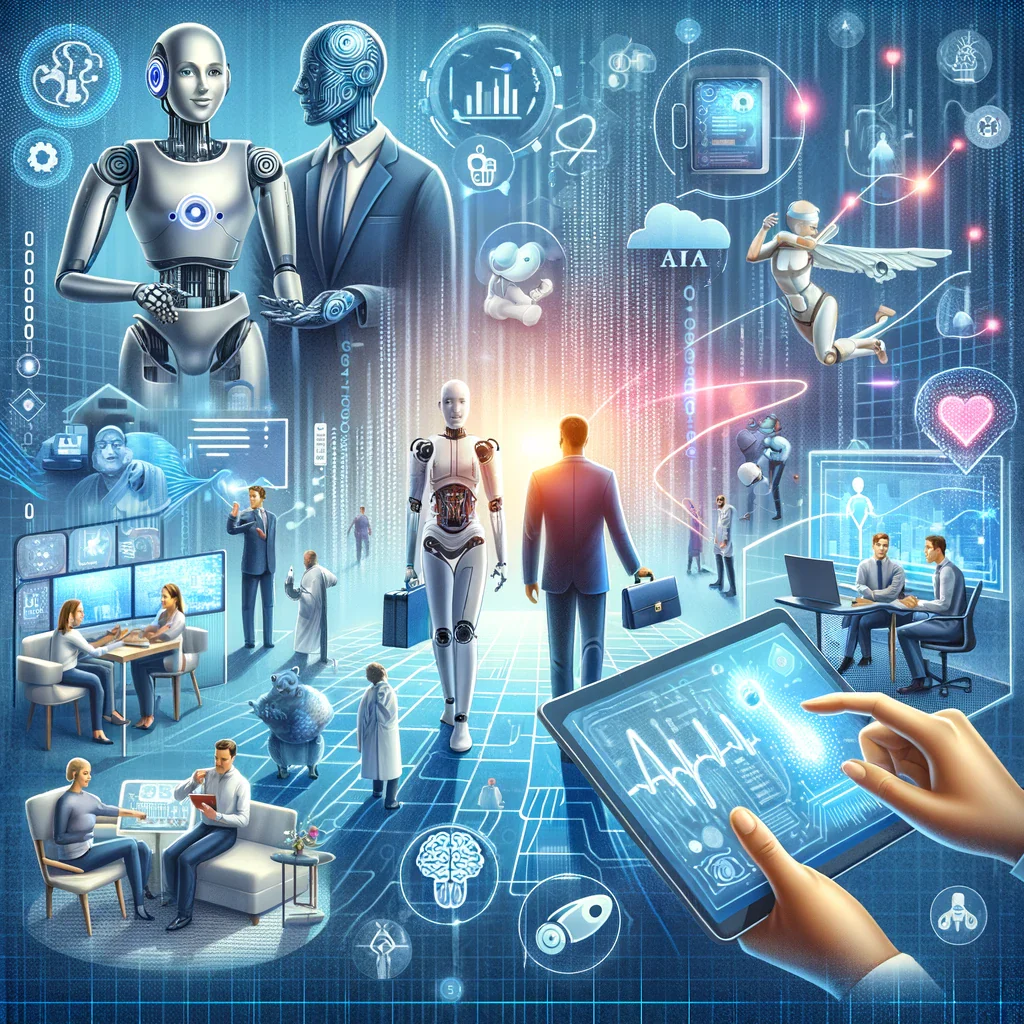Artificial Intelligence is no longer the imaginative world of science fiction but an important aspect of life. Virtual assistants and smart home devices have been changing how humans live, work, and relate to their environment through AI. This blog post will tell you about the ways AI is changing day-to-day life, advantages, difficulties, and right after that:
Understanding AI in Everyday Life:
In very simple terms AI means the simulation of human intelligence by machines and programs that actually can learn, solve problems, and make decent decisions as per their best capacity. AI is a technology that simulates human cognitive functions such as machine learning, natural language processing, and computer vision. It started as a highly specialized area and has since evolved into something that is now widely in the hands of millions each day, unbeknownst to almost all users.
How AI is Integrated into Daily Activities?
Artificial intelligence has quietly slipped into our daily activities and helped us live a more comfortable and organic experience of existence. Some common examples include:
Virtual Assistants: They can perform tasks ranging from setting reminders and answering questions to controlling your smart home, and the list of their capabilities continues to grow.
Personalized Recommendations: With platforms such as Netflix and Spotify leveraging them, AI is behind the smart syncing without interruption of your favorite TV series or music playlists based on what you like to watch or listen to.
Smart Homes: From learning your temperature preferences to detecting unusual activity by security cameras, AI is built into smart home devices.
Healthcare: Wearable devices that contain AI process data like heart rate, and physical activity and keep an eye on your health in real-time, detecting possible diseases.
Benefits of AI in Everyday Life:
AI comes with a lot of advantages, as this improves the standard of living and increases productivity. These include:
Increased Efficiency: According to Coleman, AI will perform these boring jobs and game systems.
Improved Accuracy: Artificial Intelligence systems are generally much more capable of processing the enormous sea of data that we now have access to (particularly in fields like healthcare and finance), doing so with a level of precision that increases the accuracy where potential human error can miscalculate.
Personalization: Services across entertainment, shopping, and travel are using AI algorithms to customize experiences based on the preferences of the individual enhancing customer satisfaction.
Better Decision-Making: Using AI tools to analyze this sea of data is the key differentiator, and it helps individuals and businesses alike to make faster and better decisions.
Challenges and Concerns:
There are many benefits of AI, but it also presents a lot of challenges and ethical questions. The following are among the most urgent issues.
Privacy and Data Security: This is exacerbated by many AI systems using massive amounts of personal data, a cause for concern around practices related to the harvesting, storage, and use of this data.
Bias in AI Algorithms: When the data being fed into AI models contains biases, as it often does, it can reproduce these biases in harmful and discriminatory ways.
Job Displacement: If AI and robotics automate jobs that do not require much thinking, especially those in traditional industries using manual labor or performing routine tasks, workers could be displaced.
Dependence on Technology: In the future, high levels of AI integration into day-to-day life may lead to a lackadaisical attitude and lower problem-solving and critical thinking capabilities.
The Future of AI in Everyday Life:
This evolution of AI in our lives will only increase as the technology is further matured. Autonomous vehicles, smart cities, and, advanced robotics are some groundbreaking AI technologies set to disrupt industries and the way we experience the world around us. It will be able to predict better and become more contextual and emotional, thereby humans can interact with the machines more humanely the need for (human) ethics would become even more immense, ensuring that as AI started becoming true-blue next-gen entities, they serve the soy more than an elite few.
Conclusion:
AI is disrupting our daily lives, bringing convenience, efficiency, and personalization as well as challenges that we need to deal with. The more we introduce AI into our everyday lives the more it becomes imperative to find a balance between tapping into its potential and being wary of protecting privacy, bias, or ethical use. The great promise of the AI future is its potential to make our lives better, but it is up to us instead not manage this opportunity wisely.




